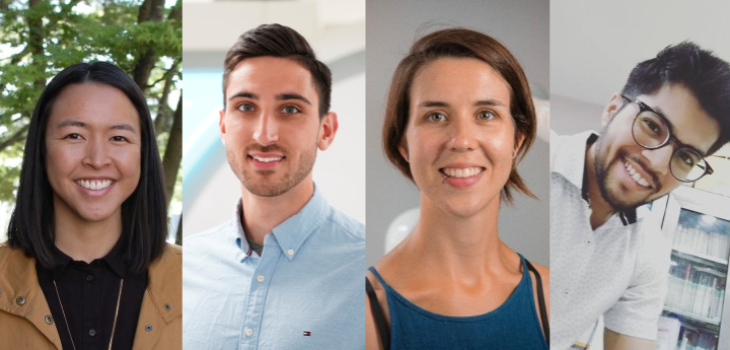News
Move to the Elbe for medical technology
In Magdeburg, on the banks of the Elbe, a close connection between theory and practice flourishes, attracting budding medical technicians. Interdisciplinary cooperation, together with various institutions such as the university, research institutes and companies, is making more and more advanced tools for diagnoses and therapies available in medicine.
The University of Magdeburg offers a bachelor's degree program in medical engineering that addresses precisely these challenges. Here, engineering and healthcare merge in a unique degree program. Subjects such as electrical engineering, physics, mathematics, anatomy and computer science are the focus. The close cooperation at the Research Campus STIMULATE in Magdeburg's Port of Science is particularly impressive. Innovative research and development work is being carried out there to develop groundbreaking solutions and imaging technologies for medical procedures.
Two dedicated students, Anna Kötter and Max Knobus, made a conscious decision to move to Magdeburg last year. Although they initially began their medical technology studies in southern Germany, they found that their expectations were not met there. The University of Magdeburg convinced them by directly linking technical and medical study content as well as practice-oriented projects that prepared them for the real world of work. Despite the move, they were impressed by the quality of teaching and the interpersonal relationship.
After two semesters, they draw a positive balance. The student advisors and the supportive student council played a major role in making them feel comfortable and well cared for. They also see promising prospects after graduation, especially due to the developments at the Research Campus STIMULATE. Medical technology companies are settling there and offer exciting career opportunities.
With a degree in medical technology, various career paths are open to them, be it in research, software development or product and quality management. In addition, there is the option to deepen their studies in the appropriate master's program at the University of Magdeburg. The future of medical technology in Magdeburg promises exciting opportunities, and students are ready to embark on this exciting path.

Introductory event summer semester 2023
The digital introduction event for the Medical Systems Engineering Master will be on April 4, 2023 at 10am. You can find the login data here:
- https://ovgu.zoom.us/j/63797611054
- Meeting-ID: 637 9761 1054
- Password: IntroMSE
MSE graduate Ivan Fomin receives excellent grade
On February 17, 2021, Ivan Fomin, as one of the best graduates of the master's program in Medical Systems Engineering, completed his master's thesis in medical robotics focused on the applicability in interventional magnetic resonance imaging (iMRI) with the highest grade and will continue and deepen the exciting topic in the context of his subsequent PhD thesis at the research campus STIMULATE.
Prior to his master thesis, Ivan Fomin researched and developed for 3 months at the Athinoula A. Martinos Center in Boston in a collaborative project in cooperation and supervision with Dr. Thomas Witzel on the topic of "Gradient Power Amplifier". The resulting gradient amplifier for small format MRI systems is capable of simultaneously and reliably powering multiple gradient coils. Ivan Fomin was able to demonstrate the functionality of the innovative gradient amplifier with image recordings in combination with a tabletop MRI device developed at STIMULATE.
The skills acquired through the collaborative project were specifically used by Ivan Fomin to address the topics in his master's thesis, in which he primarily addressed the remote placement of instruments under magnetic resonance (or X-ray) imaging for more precise and safer therapy of tumor lesions. Using interdisciplinary combined medical engineering approaches, Ivan Fomin demonstrates a greatly simplified feasibility of minimally invasive interventions in the confined space of an MRI scanner - between the tunnel wall and the patient - compared to previous approaches. In particular, the robotic system makes it easier for the clinical operator to access the patient, eliminating the need for interventions that are currently still performed manually with arms stretched out deep in the center of the MRI tunnel. This will simplify treatment and make it safer, which may also lead to an increase in the number of cases. Radiological clinics can thus offer a greater range of patient-friendly, MRI-guided diagnostics and therapy.

Field reports from our alumni and students!
In order to give our prospective students even more information about the Medical Systems Engineering study program, we now provide personal impressions from both our alumni and our students. Get a first-hand account of what they particularly like about the program!

Winter semester 2020/2021 starts later!
At the OVGU a new academic year schedule was published. This includes in particular a later start of the introductory days and lecture period in the winter semester 2020/2021. For the upcoming winter semester, the following periods therefore apply to our MSE students:
- Winter semester: October 01, 2020 to March 31, 2021
- Introduction days: October 19, 2020 to October 23, 2020
- Lecture period: October 26, 2020 to February 06, 2021
